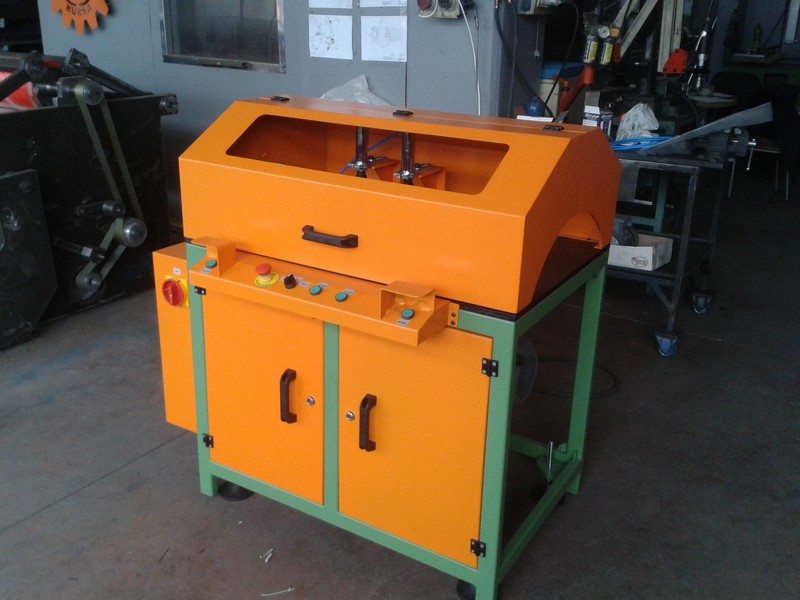In today’s rapidly evolving world, the industrial landscape is undergoing a significant transformation. The integration of advanced technologies, such as artificial intelligence and robotics, has paved the way for a revolution in production lines. This article delves deep into the reasons why ‘Machines for Industry‘ are revolutionizing production lines, exploring the impact they have on efficiency, productivity, safety, and overall operational excellence.

Why ‘Machines for Industry’ are Revolutionizing Production Lines
With the advent of ‘Machine for Industry,’ the manufacturing sector is witnessing a paradigm shift in how goods are produced. These cutting-edge machines are equipped with advanced technologies that enable them to perform complex tasks, previously reserved for human operators. Let’s explore the key reasons why these machines are revolutionizing production lines:
1. Increased Efficiency through Automation
Automation lies at the heart of the revolution happening in production lines. Machines for industry possess the ability to perform repetitive tasks with unmatched precision, speed, and consistency. By automating these mundane and time-consuming processes, companies can significantly enhance their production efficiency and output. This increased efficiency translates into reduced operational costs and higher profit margins.
2. Enhanced Productivity and Output
One of the most compelling reasons behind the revolution of production lines is the substantial increase in productivity and output. Machines for industry can work tirelessly around the clock, without the need for breaks or rest, leading to a significant boost in production capacity. Moreover, these machines can achieve faster cycle times and execute complex operations, resulting in a higher volume of finished products within a shorter timeframe.
3. Improved Quality Control
Ensuring consistent product quality is a critical factor for any manufacturing business. Machines for industry play a vital role in achieving and maintaining high-quality standards. These machines are equipped with advanced sensors and monitoring systems that enable real-time quality control during the production process. By minimizing human error and variations, these machines deliver products with superior precision and reliability.
4. Enhanced Workplace Safety
Workplace safety is of paramount importance in any manufacturing environment. The introduction of machines for industry has significantly improved safety standards on production lines. By automating hazardous or physically demanding tasks, these machines minimize the risk of accidents and injuries. This not only protects the well-being of the workforce but also reduces the company’s liability and associated costs.
5. Streamlined Supply Chain Management
Efficient supply chain management is crucial for the success of any manufacturing business. Machines for industry facilitate seamless integration within the supply chain, from raw material procurement to the delivery of finished products. Through automation and advanced data analytics, these machines enable real-time tracking and optimization of production processes, minimizing bottlenecks and maximizing overall efficiency.
6. Flexibility and Adaptability
In today’s dynamic market, adaptability is the key to staying competitive. Machines for industry offer unparalleled flexibility, allowing manufacturers to quickly adapt to changing customer demands and market trends. With their programmable capabilities, these machines can be easily reconfigured to accommodate new product designs or variations. This agility enables manufacturers to respond swiftly to market demands, reducing time-to-market and enhancing customer satisfaction.
Frequently Asked Questions (FAQs)
- Q: How do machines for industry contribute to sustainable manufacturing practices? A: Machines for industry promote sustainable manufacturing practices by optimizing energy consumption, reducing material waste, and minimizing environmental impact through precise control and efficient resource utilization.
- Q: Can machines for industry replace human workers entirely? A: While machines for industry can automate many tasks, they are designed to work alongside human operators rather than replacing them. The combination of human expertise and machine efficiency yields the best results in terms of productivity and quality.
- Q: What are the primary considerations for implementing machines for industry in production lines? A: Key considerations include assessing the compatibility of existing infrastructure, evaluating the costs and return on investment, training the workforce to operate and maintain the machines, and ensuring regulatory compliance.
- Q: Are machines for industry affordable for small and medium-sized enterprises (SMEs)? A: The cost of machines for industry varies depending on factors such as complexity, functionality, and customization. While initial investment may be significant, the long-term benefits often outweigh the costs, making them a viable option for SMEs as well.
- Q: Do machines for industry require extensive maintenance? A: Machines for industry do require regular maintenance to ensure optimal performance and longevity. However, advancements in predictive maintenance techniques and remote monitoring have made maintenance more efficient and cost-effective.
- Q: How do machines for industry contribute to job creation? A: Although some tasks may be automated, machines for industry create new job opportunities in areas such as machine programming, maintenance, and supervision. They also enable companies to expand their operations, resulting in overall job growth.
Conclusion
The revolutionizing impact of machines for industry on production lines cannot be overstated. With increased efficiency, enhanced productivity, improved quality control, workplace safety, streamlined supply chain management, and unmatched flexibility, these machines have become the driving force behind the transformation of the manufacturing sector. As technology continues to advance, the integration of machines for industry will further reshape the future of production, leading to unprecedented growth and opportunities for businesses worldwide.


Leave A Comment